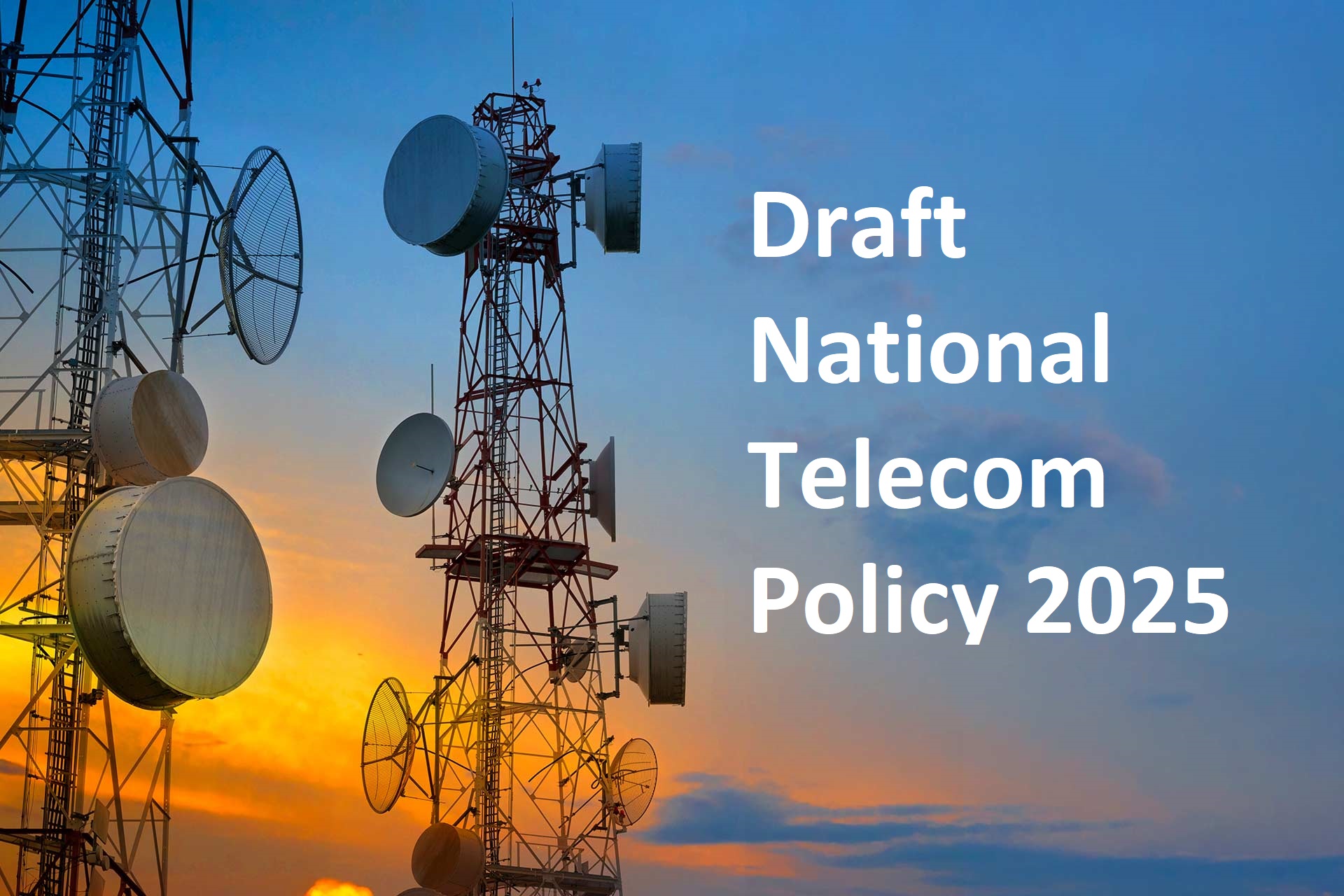
Draft National Telecom Policy 2025
Department of Telecom (DOT) has issued draft National Telecom Policy (NTP) 2025 on 24th July 2025 as per their order no 7-2/2024-Policy. It is available on website of deaprtment of telecom dot.gov.in . We are summarising the complete policy here for discussion. Addinally the you can dowload the Draft NTP 2025 from the link given below:
DOT has asked submitting the comments/suggestions/feedback, if any, on the draft NTP2025 within 21 days from the date of issue of this circular. The suggestion can be sent by Email to “uspolicy.hq-dot@gov.in” with the subject line “Consultation on Draft NTP 2025”.
This draft policy is anchored on 6 core topics.
- Universal i.e. seamless connectivity – The policy aims to provide high-quality and affordable connectivity to every citizen of India. With quality being a major concern among telecom service providers today, the NTP 2025 must prioritize addressing this issue.
- To increase the Innovation in India – India has seen significant innovation in telecom, with the government organization CDOT leading extensive R&D efforts. However, private businesses have made limited investments in the telecom sector. This NTP will address this gap and work towards making India a hub of innovation;
- To promote Make in India (Increase doemstic Manufactrung of Telecom prodcuts) – India has long relied on importing telecom technologies. While CDOT played a crucial role in the telecom sector’s early development during the 1990s—revolutionizing connectivity by providing India-specific switches that reached remote villages—it has lagged behind in advancing GSM, mobile, and newer generations like 2G, 3G, 4G, and 5G. Recently, CDOT, in collaboration with TCS and TEJAS Networks, has begun working on 4G and 5G technologies, but much remains to be done. With NTP 2025, India aims to boost domestic manufacturing, achieve self-reliance, and position itself as a telecom export hub.
- Building a Trusted and Resilient Telecom Network in India – Cybersecurity has become one of the most pressing challenges in the modern digital era. With the rapid growth of digital infrastructure and widespread internet penetration, the potential risks to data privacy, communication integrity, and national security have also increased. This evolving threat landscape has led to growing concerns over the trustworthiness of telecom networks, which form the backbone of digital connectivity in India. If telecom networks fail to provide trusted connectivity, it could undermine citizens’ confidence in digital services, hinder the adoption of emerging technologies, and pose risks to both individuals and the nation. Citizens expect their data and communications to remain secure and private. Without this assurance, the credibility of digital platforms and government-led initiatives such as Digital India may be severely impacted. To address these challenges, India must adopt a policy framework aimed at creating a trusted and resilient telecom network
- To increase ease of living and doing business through NTP 2025 – Although India has successfully moved away from the era of the license raj, there remains significant scope for improving the ease of doing business in the telecom sector. Regulatory processes, while streamlined over the years, still require further simplification to foster innovation, attract investments, and promote rapid growth in this vital industry. The focus should be on adopting simple, transparent, and efficient regulatory procedures that reduce unnecessary delays and complexities. Reducing the compliance burden on telecom operators and related businesses will encourage entrepreneurship, stimulate competition, and ultimately benefit consumers through improved services and reduced costs. Considerable progress has been achieved in recent years through various reforms and initiatives. However, continuous improvement is essential to ensure that India remains an attractive destination for telecom investments and innovation. The National Telecom Policy (NTP) 2025 will prioritize these objectives
- Promoting Green Energy and Climate Resilience -India is committed to reducing its dependence on fossil fuels and has already made significant strides in adopting green energy sources such as wind, solar, and biofuels. To build a sustainable future, greater emphasis must be placed on developing green infrastructure, improving e-waste management, and encouraging the widespread use of energy-efficient equipment. These measures will not only support the transition to clean energy but also ensure climate resilience, reduce environmental degradation, and contribute to achieving the country’s commitments under global climate agreements.
The policy aims to be future ready and looking forward to involve various stakeholder – researchers, Industrialist, Academia. strartup and other related Internaional agencies.
